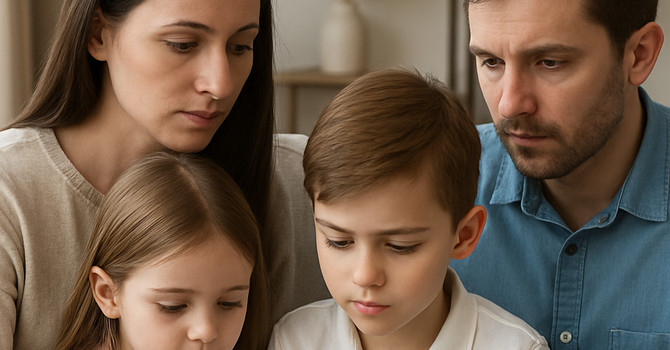
Telling Your Partner You Want a Divorce: A Journey Through Loss and Grief
Deciding to end a marriage is one of the most challenging decisions someone can make. When you tell your partner that you want a divorce, you may find yourself thrust into an emotional whirlwind. What many people don’t anticipate is how this moment can mimic the cycles of loss and grief. Even when the decision feels right, the emotional toll can be significant.
Understanding Grief in the Context of Divorce
Grief is not limited to the death of a loved one; it also applies to the end of significant relationships and life transitions. Divorce involves the loss of shared dreams, routines, and the identity you built as a couple. Even when both partners agree to separate, it's normal to experience grief over what’s being left behind.
The Stages of Grief
While everyone’s experience is unique, the five stages of grief—denial, anger, bargaining, depression, and acceptance—can help us understand the emotional journey of divorce.
-
Denial:
After making the decision to divorce, denial often creeps in. You may second-guess yourself, wondering if things could have been different. This stage might look like avoiding difficult conversations with your partner or hesitating to make the decision final. -
Anger:
Anger often surfaces as a natural reaction to loss. You may feel frustrated with your partner for not meeting your expectations, or with yourself for not being able to "fix" the relationship. -
Bargaining:
Bargaining in divorce might look like clinging to the idea of reconciliation or making promises to yourself or your partner to "try harder" if they agree to stay. This stage is often marked by hope mixed with fear. -
Depression:
The weight of your decision may bring sadness and loneliness. You may grieve the loss of intimacy, companionship, or the shared life you envisioned. This stage is often the most difficult, as it can feel overwhelming and isolating. -
Acceptance:
Acceptance doesn’t mean you’re free from pain, but it signals a turning point. Here, you begin to process the loss and rebuild your life in a way that feels authentic and hopeful.
Navigating the Emotional Fallout
Telling your partner that you want a divorce is just the beginning of the grief journey. Both you and your partner are likely to experience your own emotional cycles, often at different paces. These overlapping processes can create tension and complicate communication.
Here are some strategies to help you navigate:
-
Acknowledge Your Feelings:
Give yourself permission to feel the full range of emotions—grief, guilt, relief, and everything in between. These feelings are valid and normal. -
Prepare for the Conversation:
Approach the conversation with care and empathy. Be clear about your decision while remaining compassionate. It may help to practice what you want to say beforehand. -
Seek Support:
Surround yourself with a trusted support system—friends, family, or a therapist. Talking to someone who understands can provide comfort and perspective. -
Take Care of Yourself:
Divorce is emotionally draining, so self-care is crucial. Make time for activities that bring you peace, whether it’s journaling, exercising, or spending time in nature. -
Consider Professional Help:
A therapist can help you process your emotions, navigate difficult conversations, and find clarity during this tumultuous time.
The Other Side of Grief
While the process of divorce can feel overwhelming, it also opens the door to growth and self-discovery. Grief may never fully disappear, but with time and support, it can become a part of your story rather than its defining chapter.
If you’re in this position, remember that you’re not alone. Many have walked this path before you and found a brighter future on the other side. You, too, can emerge stronger, wiser, and more in tune with what you need to thrive.
For resources on coping with divorce and loss, or to schedule a counseling session, feel free to reach out. You don’t have to face this journey alone.
.JPEG)
.JPEG)




